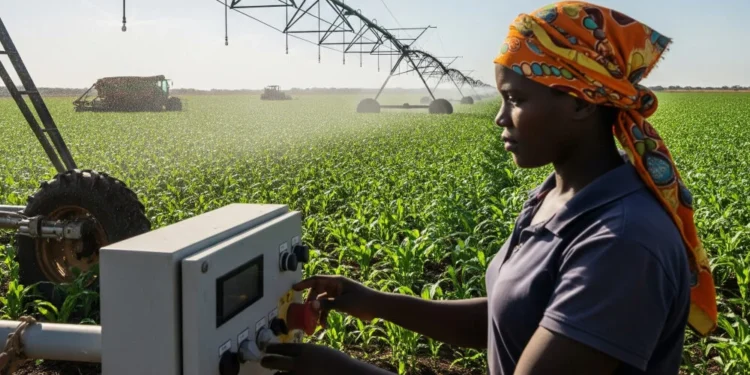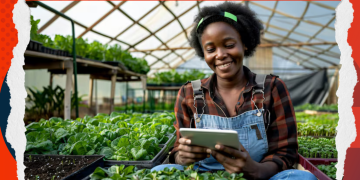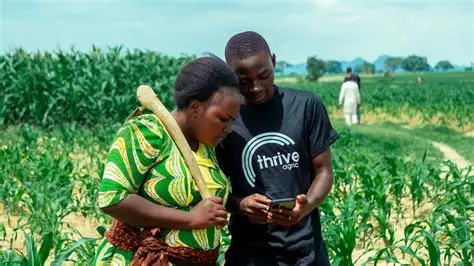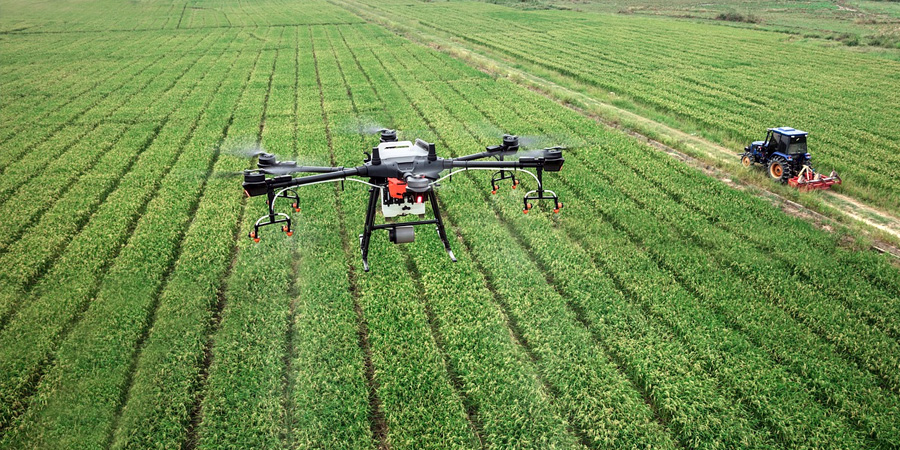Africa’s food challenge is both urgent and complex. Climate shocks, fragmented supply chains, and low farm productivity leave millions food insecure each year. Artificial intelligence is not a silver bullet, but it offers powerful tools that can help tackle these systemic issues.
Predicting Climate Shocks Before They Hit
Africa’s agriculture is highly vulnerable to unpredictable weather. AI-powered forecasting systems can model rainfall, drought, and temperature shifts with increasing accuracy.
With these insights, farmers can adjust planting cycles, irrigation schedules, and crop choices ahead of time. Governments and aid agencies can also plan emergency responses earlier, reducing the impact of failed harvests.
Precision Agriculture to Boost Yields
Many African farms rely on traditional methods with limited access to modern equipment or agronomic expertise. AI-driven precision agriculture uses satellite imagery, drones, and soil sensors to give farmers tailored advice on how and when to plant, water, or apply fertiliser.
This targeted approach can increase yields, cut costs, and reduce waste, especially for smallholder farmers who produce the majority of the continent’s food.
Smarter Supply Chains and Reduced Waste
Food waste remains a critical problem across Africa. A significant share of crops never reach the market due to poor storage, inefficient logistics, or late demand signals.
AI systems can help optimise transportation routes, predict market demand, and match buyers and sellers in real time. They can also identify bottlenecks before they lead to spoilage, ensuring more food reaches consumers.
Strengthening Food Security with Data
Many countries still lack reliable agricultural data. AI can help build accurate, real-time mapping of food production and availability. These insights allow governments and NGOs to identify vulnerable regions earlier and channel resources more effectively.
Data-driven decision-making also helps shape better policies around pricing, subsidies, and imports, reducing the risk of crises escalating into famines.
Enabling Smarter Financing and Insurance
Access to credit and insurance remains a barrier for millions of small farmers. AI can analyse farm-level data to assess risk more accurately and make lending decisions faster.
This allows banks, cooperatives, and fintech companies to offer tailored credit and crop insurance products, giving farmers a financial cushion when weather or market conditions turn against them.
Building Local Capacity for Innovation
For AI to make a lasting difference, it must be embedded locally. This means developing homegrown AI solutions, training local talent, and integrating indigenous knowledge into modern systems. Public-private partnerships can help scale these technologies sustainably, ensuring they work for African farmers rather than being imported as one-size-fits-all solutions.
A Path Forward
AI will not end hunger on its own. But when combined with strong policy, investment in infrastructure, and support for farmers, it can become a powerful enabler. By predicting climate risks, boosting yields, optimising supply chains, and improving access to finance, AI can help Africa build a more resilient and self-sufficient food system.
















